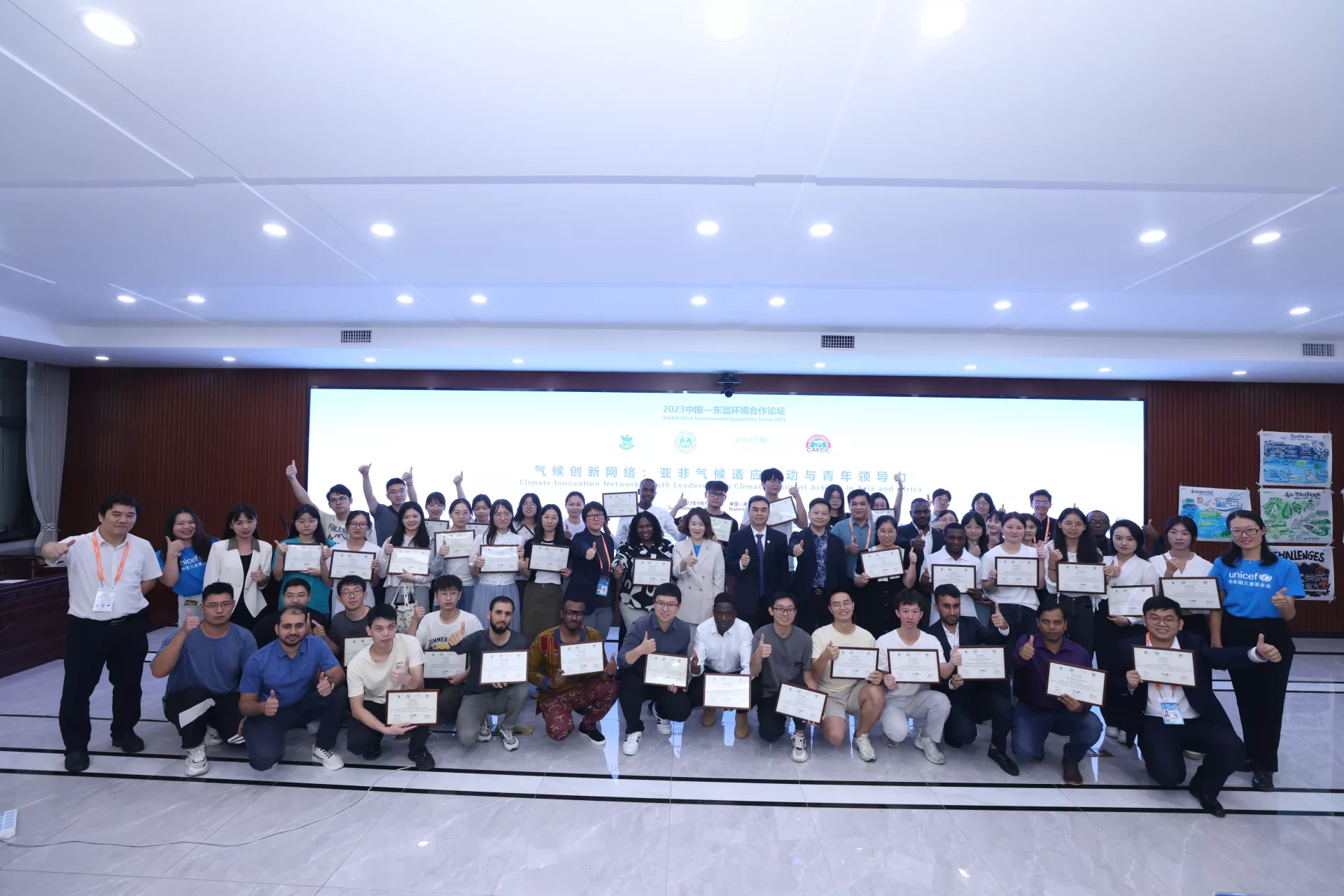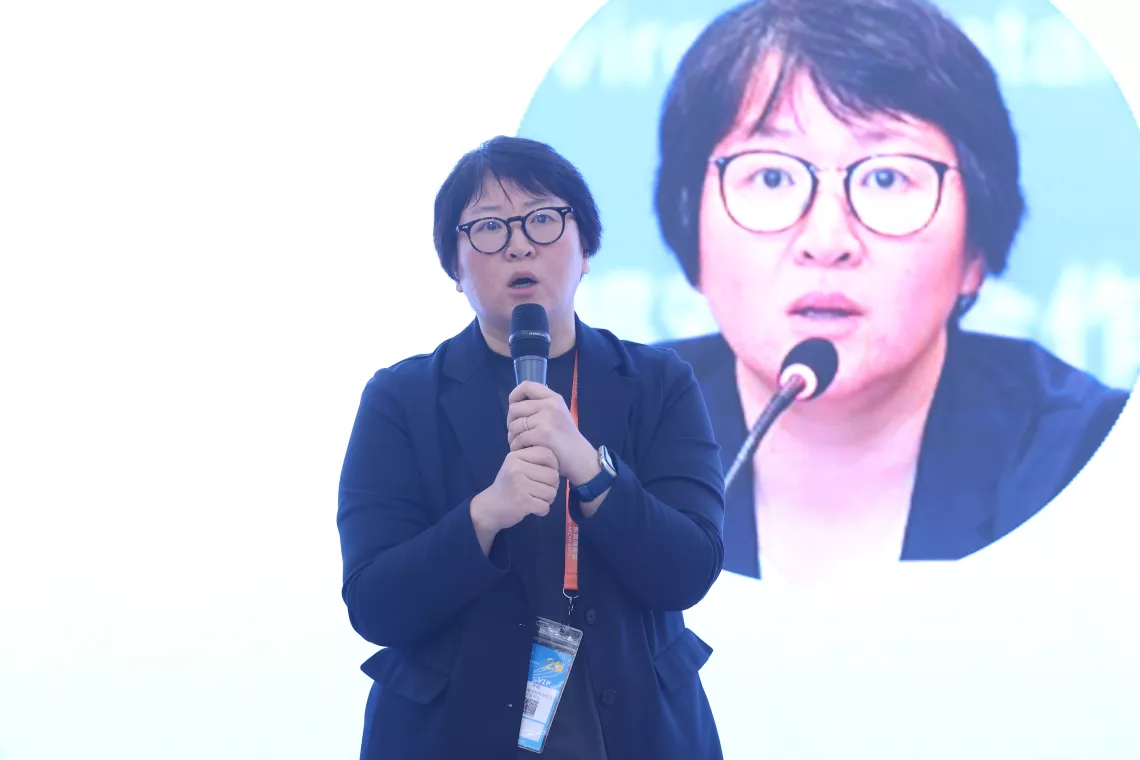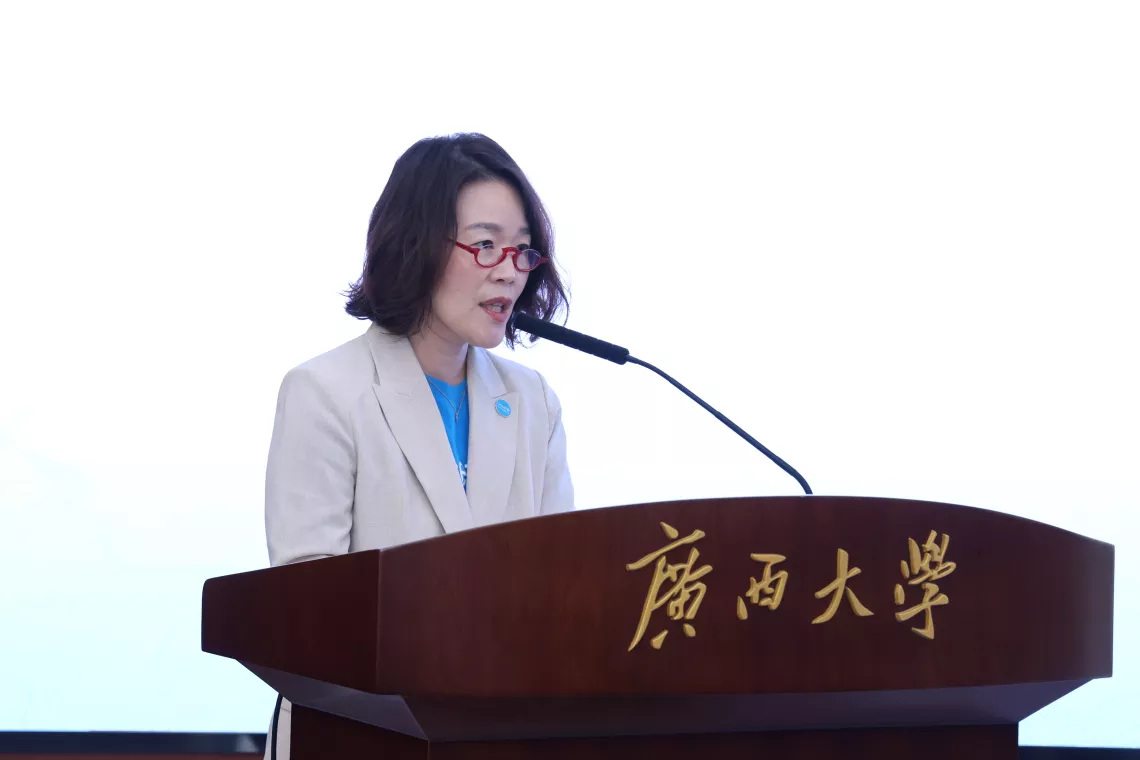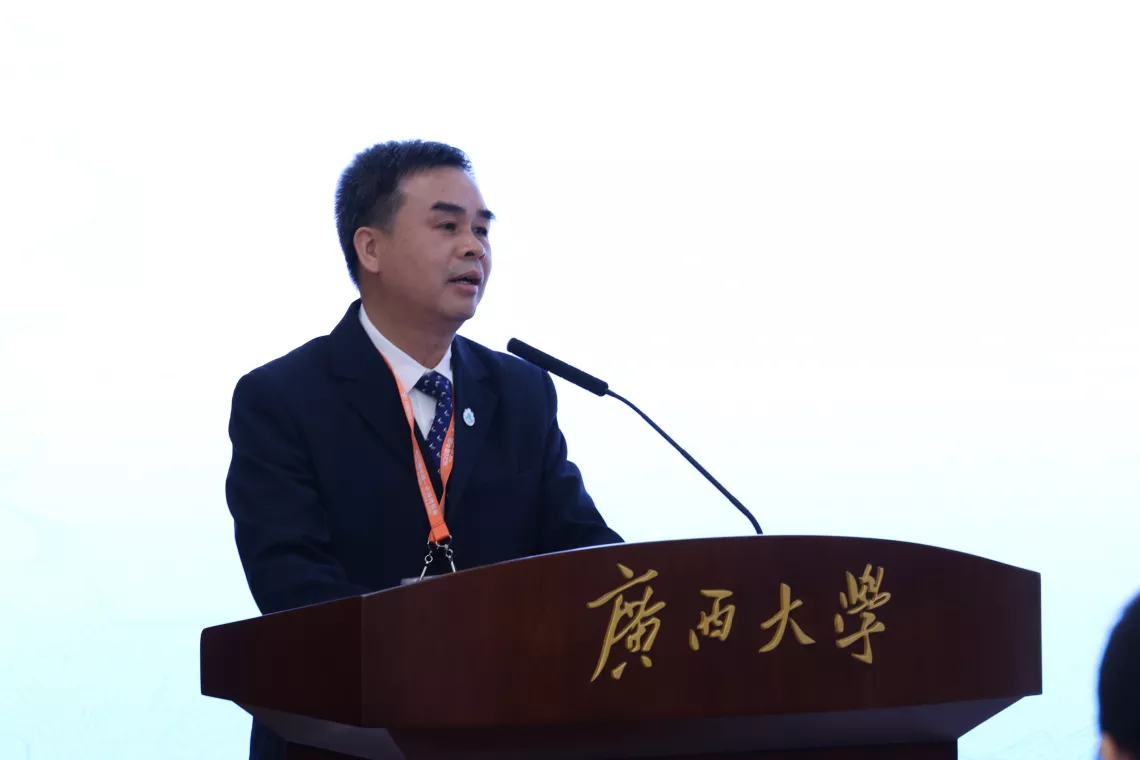Building Youth Leadership in Climate Adaptation Action in Asia and Africa
‘Youth Leadership Dialogue in Climate Adaptation Action in Asia and Africa’

- Available in:
- 中文
- English
On 15 September, UNICEF and the China-ASEAN Environmental Cooperation Center/China-Africa Environmental Cooperation Center/Foreign Environmental Cooperation Center (FECO), which is under the Ministry of Ecology and Environment co-organized the ‘Youth Leadership Dialogue in Climate Adaptation Action in Asia and Africa’. The dialogue was a subforum of the ASEAN-China Environmental Cooperation Forum 2023 held in Nanning, Guangxi Zhuang Autonomous Region. Decision makers, academia, private sector partners and young people from Asian and African countries came together to discuss young people’s needs for investment in climate change adaptation by governments and the private sector, capacity building, and access to quality climate education and green skills.
Children and young people bring invaluable voices that can help improve climate governance. The youth dialogue provided a platform for participants to advocate for prioritizing children and young people’s rights in climate financing and resource decisions, and for preparing them for climate adaptation through climate education, green skills and meaningful participation.

“Climate change is affecting everyone, and strengthening dialogue among Asian and African young people is crucial to promoting global climate action and finding sustainable solutions to the climate crisis. As young people are the future of the world's development and the hope for the global response to the climate crisis, the dialogue aims at promoting the Climate Innovation Network with multi-stakeholder’s participation, and further strengthening young people’s climate knowledge, capacity and leadership.”

“There is clear evidence that beyond rapidly reducing emissions, the most effective and immediate way to protect children and young people from climate change is through adapting the critical social services they rely on, such as education, health, water and protection services, and empowering them to participate in solutions. Children and young people, including all of you, are co-creators of solutions to climate change. Acquiring skills, including green skills, will enable and empower young people.”

“Climate education and training should be strengthened to enhance young people’s climate-related knowledge and skills and improve their capacity for climate adaptation. Young people should be more involved in the formulation of policies, programme implementation, evaluation and monitoring of climate change adaptation actions, making full use of their wisdom and talents.”
Experts from the ASEAN secretariat, entrepreneurs, investors and youth representatives shared their experiences and suggestions for addressing the financing gap for climate actions for children and young people. Investment can support young people with capacity building, funding, and university-enterprise alignment, all of which accelerate innovation in the green industry and sustainable development. Green skills – the knowledge, abilities, values and attitudes needed to live in, develop and support a sustainable and resource-efficient society – are enablers for young people to adapt to climate change and achieve their goals in career and life.
The panelists underlined that governments, international organizations and schools should support young people in applying their green skills in concrete climate actions by providing them with more quality educational content, vibrant communities, and career opportunities.
Students from Asian and African countries joined group discussions to reflect on and provide suggestions for these issues. The students contributed to a Youth Pledge, calling for immediate action by governments, international organizations, civil society organizations and the private sector to uphold children and young people’s rights in policies and investment decisions.
“Youth have an important role to play in protecting the environment because they are brimming with a passion to learn and bring about positive change to society. They also have the greatest access to information and online technology compared to other age groups. As they make up the largest share of the population in the country, young people are poised to take action to help improve society and amplify the voices of other youth across different areas, including environmental protection.”
“The gains from youth participation go beyond the dialogue room; they extend into the realms of policy development, innovative solutions, and a heightened collective consciousness towards preserving our planet. By empowering youth with the knowledge and motivation to embrace green skills, we are sowing the seeds for a greener, more sustainable tomorrow.”
“We are also the gardeners of the Earth, and it is our responsibility to protect and nurture it. We need to be more careful with our resources, reduce waste and adopt sustainable lifestyles. We need to invest in clean energy and green technologies to reduce carbon emissions, improve air quality and protect ecological diversity. We need to work together in the international community to address climate change, as it is a challenge that transcends national boundaries and that no country can solve alone.”
“The Youth Dialogue on Climate Resilience Actions in Asia and Africa was an exhilarating experience. The pledges we committed to during the dialogue made me realize the pressing need for increased global youth engagement in climate adaptation and mitigation efforts within our respective spheres. The panel discussions, featuring experts and youth representatives from diverse regions, provided valuable empowerment and motivation to actively contribute to global sustainability.”
“The exchange of ideas and best practices was energizing, with attendees learning about regional efforts and innovations. The emphasis on education and capacity-building programmes was uplifting, empowering individuals and communities to effectively combat climate change.”
“Through meaningful dialogues with youth from Asia and Africa, I delved deeply into the unique roles and responsibilities of young people in global climate actions. This invaluable experience has enabled me to find strength in my voice and solidified my determination to be a change maker in global climate governance.”
UNICEF Representative to China Amakobe Sande echoed young people’s appeals at the high-level roundtable dialogue of the forum, saying,
“UNICEF is working for children and with children to equip them with green skills for their future. We are proud to be working with China and ASEAN partners to help protect children from the impacts of climate change and to help ensure a brighter future for every child.”

